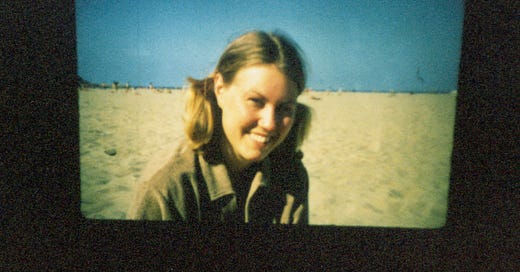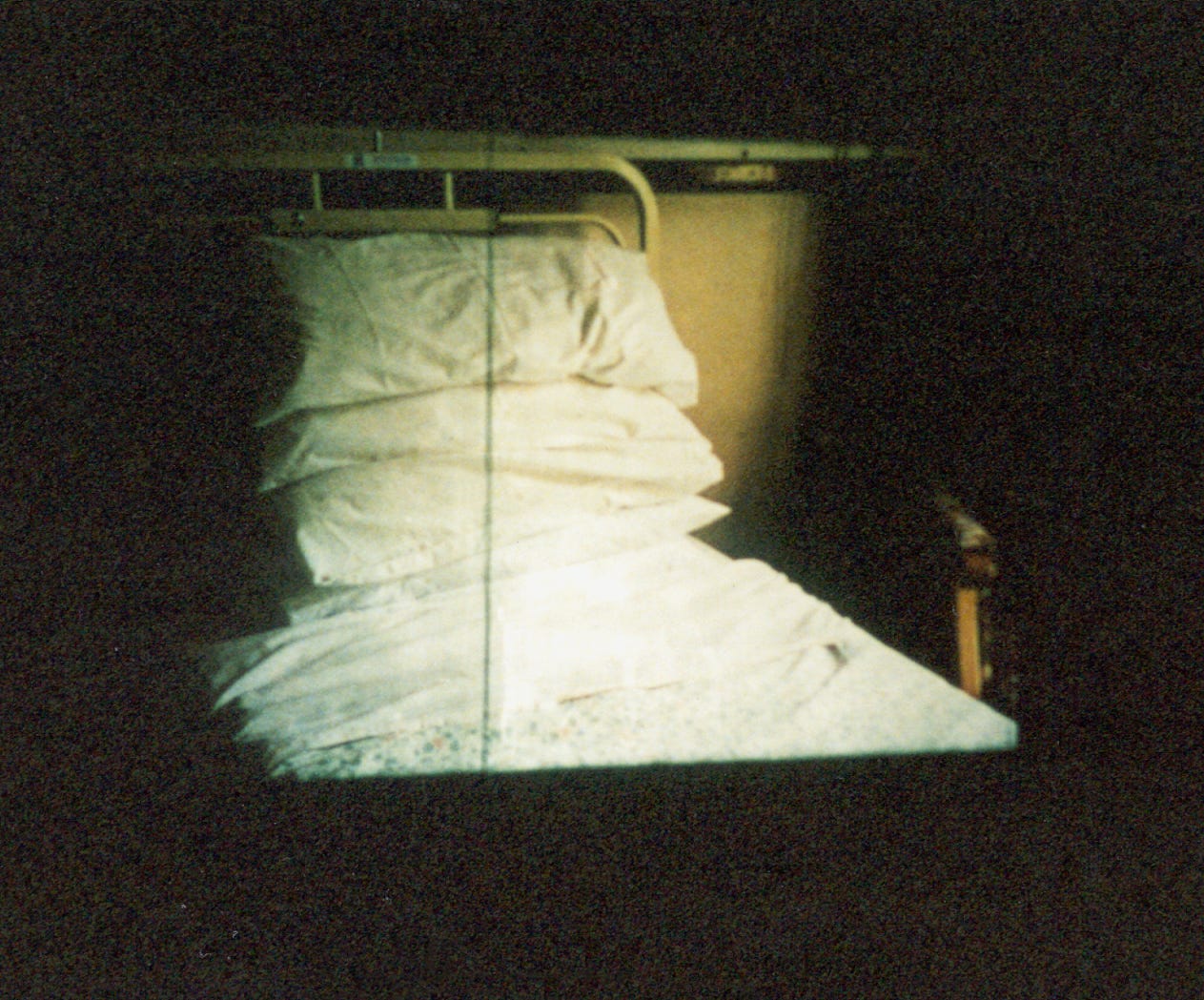Years ago, someone read over my artist statement and warned me against using the word glamour. The danger, they thought, was that I could lose potential supporters before they’d even seen my work. It could be a divisive and off-putting word. It could alienate people.
Dutifully, I weeded out all the glamour. I didn’t experience an uptick in interest for losing the glamour. Instead, I found that something in my vocabulary was missing. Life without the word glamour, I found, really does mean I’m not telling the whole story.
Glamour in Practice is a place for me to articulate myself in my words, a fuller story. I intend this to be an artist’s newsletter, where I share what I’m working on, what I’ve made, my research, my complexity.
If you met my Mum you would understand my relation to glamour. She was a deeply thoughtful woman. Novels were her education. Until she went to college to do GSCE Latin and A-Level Classics. She never took the exams, she learned for pleasure. She’d say things like ‘educate a woman, you educate a family’ if the idea of women’s education was ever dismissed in her earshot. She spent the Sixties in 4 inch heels and skirts her father called belts. She’d get dressed up to go out. She never wore trousers except comfy ones for housework. She taught me how to put make up on until I was better than her and I’d make up her face before she went out. She was glamorous. But she was a thinker. Her erudition was largely unnoticed, except by those who loved her. She was a professional home-maker, she was angry she didn’t get a wage from the government, and angry too at feminism’s indifference to her. I loved the way she could turn on a dime. A classic insight of hers: ‘your body’s just a vehicle for your soul. But you can make an effort with your vehicle and dress it up a bit’.
Seeing the world through my mother’s eyes, it’s always struck me that the lack of power and prestige she experienced in her life had nothing to do with a lack in her, but spoke of the contingencies of our social structures and hierarchies. Women wearing high heels and lipstick have no causal relation to misogyny. Indeed, if men predominantly wore high heels and lipstick, we’d ask why women didn’t make more effort. Patriarchy valorises certain behaviours and display, and it’s through that lens that social scripting has formed. Patriarchy has pushed bloody-mindedness, thoughtlessness, lack of bodily awareness, and business suits.
In saying yes to glamour, I am not saying no to voice, embodiment, or power. On the contrary.
She passed away when I was days into being twenty. For years, my life was defined by her absence in my life. Now, I recognise my life is defined by my closeness to her. So much of the way I think and behave is a reflection of her. She’s on my mind as I was writing this on her birthday, the summer solstice.
In the middle of my undergraduate degree, twenty-five years ago, I created an art installation, Susan, with two slide projections opposite each other. One of my mum around my age at that time, and the other was the hospice bed she died in. I learned a lot from making that. About emotional registers in art, about projected images opposite each other or at the side of each other. About form and content. There was a sense of staging, theatrics, and economy—these have remained key in my work. At that time, Damien Hirst was the prominent enfant terrible of the art world. His work often traded quite simplistically on the totemic of death, with titles like ‘The Physical Impossibility of Death in the Mind of Someone Living’. Contemplating his work at that time, I realised I wasn’t interested in that kind of formal or conceptual bravado. I’m not interested in the idea that grand, irreducible themes are meaningful because they invoke heightened emotion. Hirst’s work represents a kind of grandiose glamour. I’m interested in a subtler, embodied glamour. Since making Susan, I saw the naivety of that piece, and I’ve been drawn to finding subtle moments of curiosity and intrigue in the art I make.
I felt an uncharacteristic urge to begin this Substack at a foundation point for me, a creative bedrock from which I’ve departed. The substrate that formed me. Subsequent posts will involve much more recent endeavours. I can promise you depth, and surface.
Please join me,
Allie






Funny, when I saw the word "glamour" I immediately thought of magic spells. Took me a while to remember that it has another meaning.
Hello Allie. Very nice to meet you.
The young Susan looks charming and full of joie de vivre. A great shame that you lost her so young.
I've never shied away from the word 'glamour' and am a bit mystified as to the reasoning behind the early advice given to you? For me it evokes movie stars, particularly from the B&W era, or being used as a code word for a particular genre of photography. Neither seem problematic from my perspective.
Looking forward to further posts.